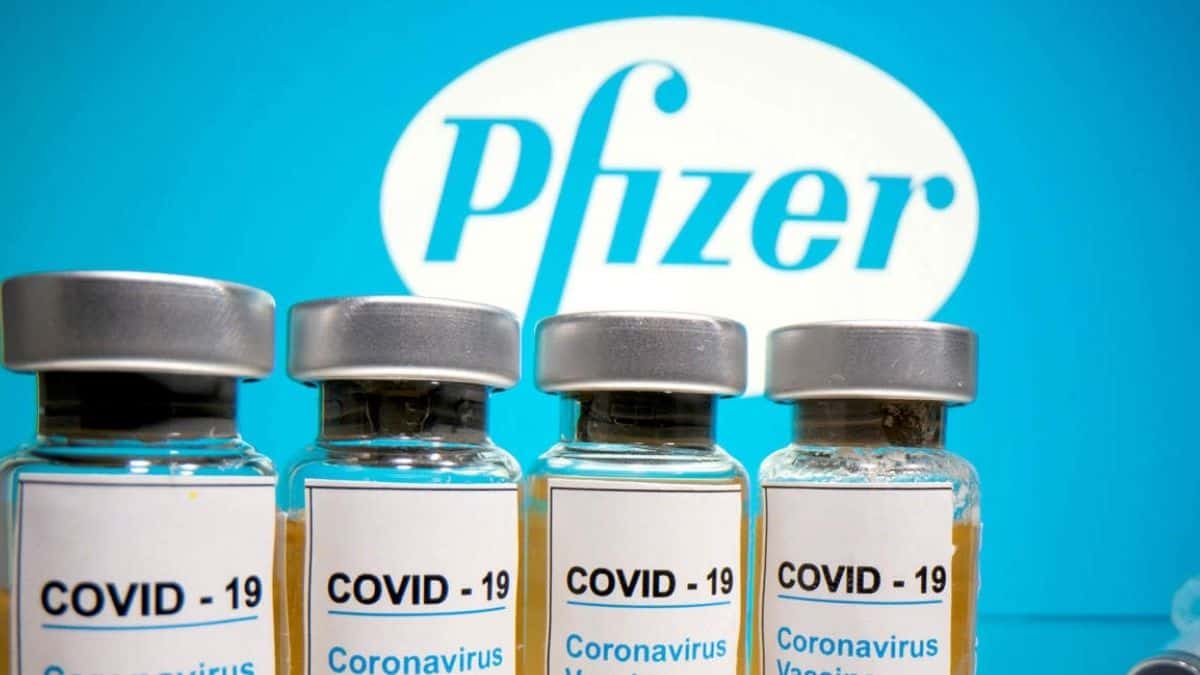Hearing loss may be related to a Pfizer vaccine, according to the World Health Organization
‘Pfizer/BioNTech vaccines were the most commonly reported COVID-19 vaccinations in these patients,’ according to the WHO newsletter.

Following the injection of the COVID-19 vaccine, the World Health Organization published a study reporting exceedingly rare cases of hearing loss and other auditory difficulties.
Tinnitus, a hearing impairment that causes ringing in the ears, may be linked to immunizations, according to the health office.
After receiving his second dose of the vaccination, Gregory Poland, MD, director of the Mayo Clinic’s Vaccine Research Group in Rochester, Minnesota, says he got tinnitus.
He recalls nearly drifting out of his lane driving home from the hospital after receiving his second dose in an interview with MedPage Today.
Poland told the medical journal, “It was like someone suddenly blew a dog whistle in my ear.” “It’s been pretty much unstoppable.”
Poland has been suffering from tinnitus, which he characterises as “life-altering.”
“I can only begin to guess how many times I just want to scream because I can’t get rid of the noise or how many hours of sleep I’ve missed,” he added of his own problems. The noise is “especially intense at night when there are no masking sounds,” he says.
Despite his negative effect, he still believes in the need of getting poked as a vaccinologist. He chose to get a booster because he was afraid about catching COVID and spreading it to his patients.
Individuals from all around the country and the world have shared with him their post-vaccine experiences, claiming that they, too, suffered tinnitus after receiving the COVID vaccine.
“As a seasoned physician, what has been sad about this is the emails I’ve had from folks who say this has had such a negative impact on their lives that they’ve informed me they’re going to commit suicide,” Poland added.
Among the 11 billion immunizations provided, the WHO documented 367 cases of tinnitus and 164 cases of hearing loss, with onset times ranging from a few minutes to 19 days, but most commonly within a day following the shot.
The unfavourable side effect was discovered by Dr. Christian Rausch and Dr. Qun-Ying Yue of the Uppsala Monitoring Centre, a Swedish nonprofit organisation that interacts with the WHO.
The doctors reported in the WHO newsletter that “one incidence of tinnitus following the first dose diminished over a couple of days,” but “hearing loss recurred after the second dose, and the patient was put on steroid therapy; no risk factors were recorded.”
“In another case, bilateral tinnitus appeared more than a week after the initial dose and worsened 1.5 weeks later. Unspecified drugs were received, and the patient sought medical advice from an ENT specialist. Another reported hearing loss that went away within two days after the first dose but returned after the second dose, necessitating steroid therapy.”
According to their findings, patients with tinnitus ranged in age from 19 to 93, with women accounting for 63% of the cases. The symptom was discovered in 27 nations, including the US, the UK, and Italy. Furthermore, the health-care industry accounted for more than a third of the instances documented.
“Pfizer/BioNTech vaccines were the most commonly reported COVID-19 vaccines in these instances,” according to the WHO advisory, accounting for about 80% of the cases.
Hearing loss is not included as an adverse reaction for COVID-19 vaccines, and tinnitus is only listed for the Janssen COVID-19 vaccine, according to the researchers.
So far, just one study, published in February, has looked into the possible link between COVID-19 vaccination and acute sensorineural hearing loss (SSNHL).
“It appears that hearing issues have been recorded for most COVID-19 vaccinations, but with varying IC025 values,” according to the paper. “For the recently reported cases, a more in-depth assessment of narratives has not been undertaken.”
Because the research is limited, the WHO stated that safeguards for the data and its interpretation will be adopted.
Medical specialists determined that, despite its rarity, this condition should be evaluated.
“Because the literature and ICSR data for this link are currently limited,” the WHO bulletin concluded, “further monitoring is recommended.”


